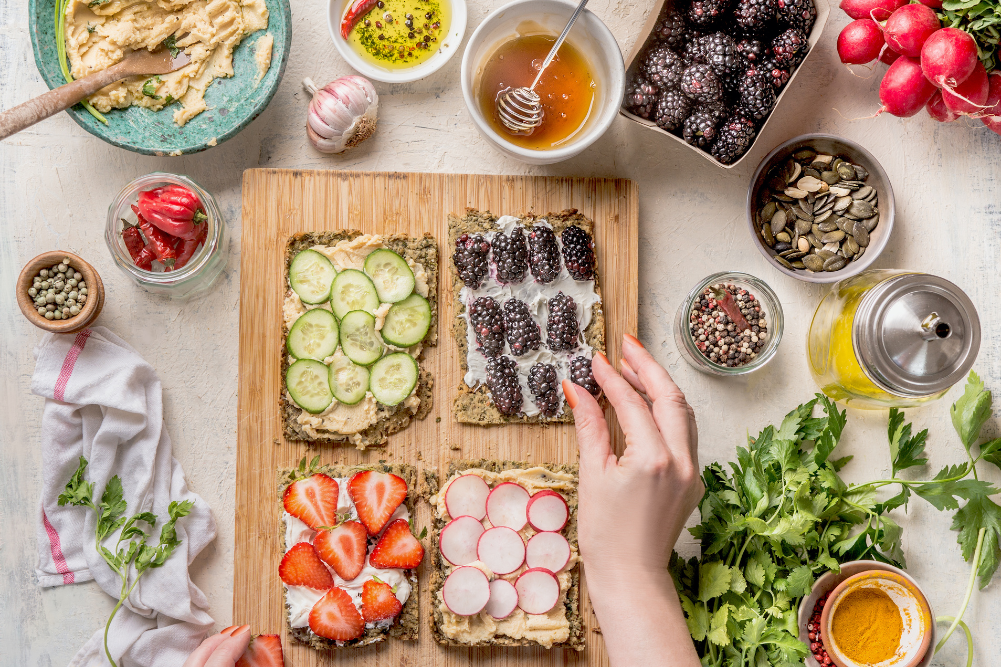5 nutritional trends Endeavour College of Natural Health alumna, Meg Yonson, hopes will stay after the pandemic ends
As we continue to ride the wave of COVID-19, one sector that’s growing amid many failing industries is food and nutrition. Endeavour College of Natural Health alumna, Meg Yonson, explores five food trends that she hopes will stay long after this pandemic is gone.
Yonson is a qualified nutritionist, an experienced recipe developer and graphic designer. For the past seven years, she has been working professionally in the food space, predominantly on health and wellness projects. Right now, she’s juggling several projects, including the next CSIRO cookbook.
“Given the nature of my work, I’m always watching trends and developing projects that respond to what I’m seeing. It’s amazing to see how this area is evolving, and hopefully these food trends will stick,” says Yonson. “The pandemic may have reduced our ability to eat out with friends and family, but we’re still finding ways to connect over food.”
- Opting for healthy
“People are more aware of their health, and there’s a growing interest in what they can do to improve their health and immunity, beginning with the food they eat,” says Yonson. “For nutritionists, this is good news because our knowledge and experience are more in demand than ever.”
- Keeping it simple
“We had already seen a shift towards simpler meals with a focus on a few quality ingredients, but COVID-19 accelerated this trend. Taste and nutritional value are more important than a fancy cooking technique,” says Yonson. “We’re even seeing this trend in restaurants.”
- Home cooking from scratch
“Even where restrictions have been eased, people are still not going out like before. Stuck at home, they’re honing their cooking skills and learning how to make things from scratch,” says Yonson. “Just look at the rise in baking and bread making during COVID-19! As well as providing nourishment, home cooking is something useful and tangible that we can create during so much uncertainty.”
- Using what’s available
“It’s not just toilet paper that’s hard to find! People have got creative about substituting ingredients that they can’t find or growing their own herbs or vegetables,” says Yonson. “And some people are discovering frozen products they didn’t know existed.”
- Shopping local
“Confined to our neighbourhoods because of the pandemic, we’ve got little choice but to shop locally. We’ve realised the importance of supporting our local grocers and growers as it’s the most reliable way to access food,” says Yonson. “People are paying closer attention to where food products come from, what’s shipped from overseas and they’re choosing to buy local.”
Turn your passion into your purpose at Endeavour College of Natural Health
Campus locations
Adelaide, Brisbane, Gold Coast, Melbourne, Perth, Sydney
There’s never been a better time to study natural medicine
Already a $4.9 billion industry, Australia’s complementary health sector has grown by 70 per cent in the past five years, according to Australia’s Complementary Medicines Industry Snapshot 2018. Currently employing more than 36,000 natural health practitioners and supporting a further 29,000 jobs in the complementary medicine industry, the future already looks bright for our graduates, with new careers and job opportunities evolving as the industry continues to grow.
Learn through practice
Each campus has an on-site Endeavour Wellness Clinic, where theoretical knowledge comes to life for students. Endeavour College’s Health Science degrees include hundreds of hours of hands-on learning with real clients. This clinical experience sets Endeavour College graduates apart and gives them confidence to begin their clinical practice.
Endless career choices
Endeavour College graduates can work as clinical practitioners in their own clinic or a multi-modality clinic alongside other clinicians. Many graduates are now taking their clinical practice to the client by offering mobile services as well as online using digital technology to give access to clients at a distance. In addition to clinical practice, graduates have countless non-practitioner careers available to them. These natural health specialist careers range from content creation to education to consulting and advising. With such a variety of careers available, Endeavour College graduates have the luxury of designing their careers to fit their passions, aspirations and lifestyle.




